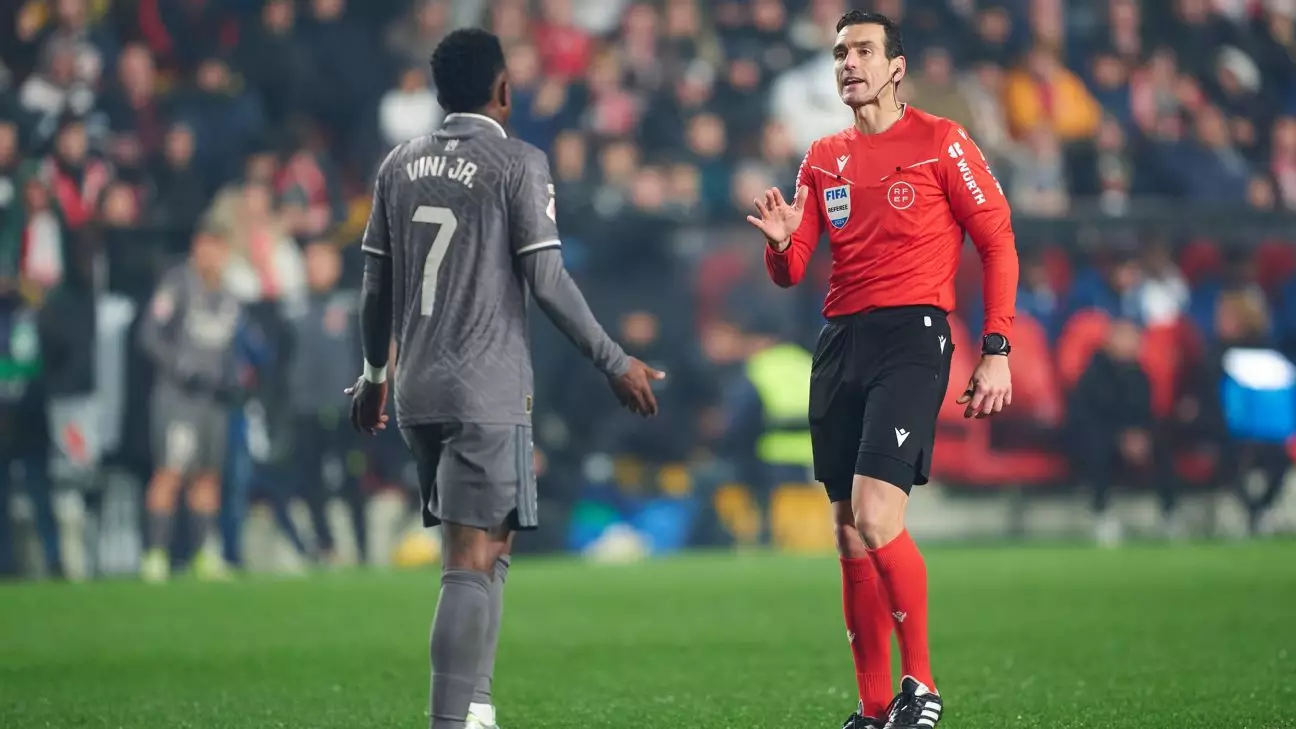In a thrilling match that encapsulated the unpredictability of football, Real Madrid faced Rayo Vallecano in a LaLiga encounter that ended in a dramatic 3-3 draw. The game saw Real Madrid initially falter, trailing 2-0 before showcasing resilience to momentarily lead 3-2, only to relinquish their advantage in the dying moments. This rollercoaster of a game was charged with emotions, highlighting not just the tactical battles on the field but also the significant tensions that can spill over among players and fans alike.
The Incident and Its Implications
After the final whistle, a controversy erupted involving Brazilian star Vinícius Júnior, who, upon exiting the pitch, made a gesture that has drawn significant scrutiny. Videos circulating on social media captured the player responding to provocative chanting from Rayo fans, seemingly implying that they might face relegation. This on-field interaction is not just a trivial moment; it raises questions about player conduct and the cultures within varying fan bases in the world of football.
LaLiga’s decision to report both the fan behavior and Vinícius’ response to the disciplinary committee exemplifies how sporting bodies are grappling with instances of provocation and potentially inflammatory situations. The organization’s quick response highlights a growing awareness and sensitivity towards the necessary mental and emotional environment within sports arenas.
LaLiga President Javier Tebas commented on the situation, emphasizing the absence of any racist chanting, which often dominates discussions surrounding player conduct and fan interactions today. Instead, he pointed to provocation and players’ emotional responses—an argument that sheds light on the complexities players face as they navigate hostile environments. It reflects the inherent challenges athletes endure, caught between expressing their feelings and managing the expectations of professionalism.
Adding to this narrative, Rayo Vallecano’s president, Raúl Martín Presa, criticized Vinícius’ response as inappropriate. His assertion that such gestures are particularly stinging for fans who view their club’s survival in the top tier of Spanish football as critical conveys a broader message about the responsibility athletes have to their supporters. Communication—both on and off the pitch—plays an essential role in maintaining healthy sports culture, making such incidents even more significant.
Football is not merely a game; it embodies deep-rooted cultural values and community identities. Rivalries can evoke fierce pride and intense feelings, often transcending merely the sport itself. The way players like Vinícius interact with these sentiments can spark discussions about what is considered acceptable in heated moments. There’s a fine line between rivalry banter and unsportsmanlike conduct, and the sporting community is continually defining this boundary.
As the story unfolds, it will be essential to observe how this incident impacts Vinícius’ relationship with fans, his club, and the broader landscape of LaLiga. Proper handling of such instances can contribute to a more respectful sporting environment where emotions are acknowledged but contained within the realm of competitive spirit. In the end, everyone involved must learn from such situations to promote a culture that celebrates passion while fostering respect and understanding.

